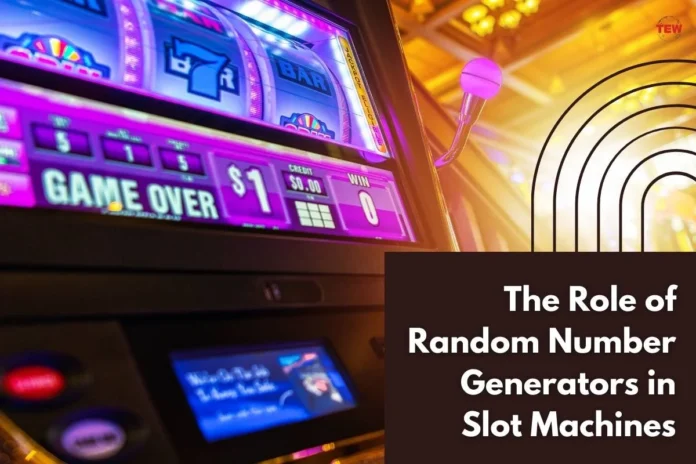Slot 4D Mechanics: How Random Number Generators Influence Your Odds
Introduction
The thrill of spinning slot reels and waiting to see if luck is on your side is something that appeals to millions of players worldwide. Whether you’re playing in a casino or on an online platform, the mechanics behind slot games are designed to make each spin unpredictable. At the heart of this unpredictability is the Random Number Generator (RNG), a system that plays a crucial role in determining outcomes and ensuring fairness. In this essay, we will explore how slot 4d RNGs work in 4D slot games, why they are essential for fair gameplay, and what players need to know about how RNGs influence their odds.
The Role of Random Number Generators in Slot Games
An RNG is a complex algorithmic system that generates random numbers hundreds of times per second, even when the machine is not in use. In slot games, RNGs assign each possible outcome of a spin a unique number. When a player presses “spin,” the RNG generates a random number sequence that determines the outcome of the game, such as which symbols appear on each reel.
In 4D slot games, RNGs are especially crucial, as these games add an extra dimension or variable to the reels. The “4D” in these games often refers to a fourth reel or a special feature layer that adds complexity to the gameplay and potential winning combinations. RNGs ensure that all of these elements combine in an unpredictable way, making each spin entirely independent of previous spins and outcomes. This randomness is crucial because it prevents players or casinos from predicting results, thus maintaining fairness.
How RNGs Work: A Closer Look at the Technology
RNGs are based on complex algorithms designed to produce numbers that approximate true randomness. In slot machines, this random number generation process often uses a “seed” number as a starting point, which then undergoes a series of mathematical operations to produce the final outcome. Since the RNG runs continuously, the number generated at the exact moment a player presses “spin” determines the result.
In regulated and licensed casinos, RNGs are closely monitored and frequently audited to ensure they meet industry standards for randomness and fairness. These RNGs use what’s known as “pseudo-random” number generation. While they are not random in the purest sense (since computers follow specific rules and formulas), they are complex enough that players and casino operators cannot predict outcomes. The sheer speed of RNG processing – often millions of calculations per second – ensures that each spin outcome is unique and cannot be easily replicated.
How RNGs Affect Slot Odds
Understanding the odds in slot games requires grasping how RNGs determine winning probabilities. Unlike some casino games like blackjack or poker, where skill and strategy can influence outcomes, slot game odds are purely based on luck. In slot games, each symbol combination has a different probability of appearing, and these probabilities are encoded into the RNG’s algorithm. For example, high-paying symbols are less likely to appear than lower-paying ones, which is why jackpot combinations are rare.
In 4D slots, the presence of an additional reel or feature complicates the odds further. The RNG considers every possible symbol combination across all four dimensions, which means the odds of hitting a top payout are significantly lower than hitting smaller payouts. This is why slot machines often have high Return to Player (RTP) percentages but still produce losses in the short term for most players. The RTP percentage, however, provides a longer-term view of player odds, indicating what percentage of the money wagered will eventually be paid back to players, although this is spread out over many spins.
The Myth of “Hot” and “Cold” Slot Machines
Many players believe in the concept of “hot” and “cold” slot machines, thinking that machines are more likely to pay out after long periods of not hitting a jackpot. This belief, however, is a misconception, as RNGs are designed to be independent of previous spins. Because each spin is determined by a new RNG sequence, the results of previous spins have no impact on future ones. This concept is known as the “gambler’s fallacy” and highlights a common misunderstanding among players about how slot machines work.
Fairness and Regulation in RNG-Based Slot Games
To ensure that RNGs operate fairly, regulatory bodies audit and certify RNG software in casinos, particularly online casinos, where all game mechanics rely on RNG technology. These regulatory bodies conduct rigorous testing to ensure the algorithms are not manipulated and that the randomness they produce meets industry standards. For players, this regulatory oversight means they can trust that licensed slots are fair and that the outcomes are genuinely random.
Conclusion
Random Number Generators are essential to maintaining fairness and excitement in 4D slot games. By producing unique outcomes for each spin, RNGs ensure that each game session is unpredictable and fair. For players, understanding that every spin is independent of the last – with no patterns or trends to follow – is crucial for managing expectations and playing responsibly. As long as players approach slot games with a clear understanding of RNG mechanics and the role of chance, they can enjoy the thrill of the game while appreciating the technology that ensures every outcome is a surprise.

